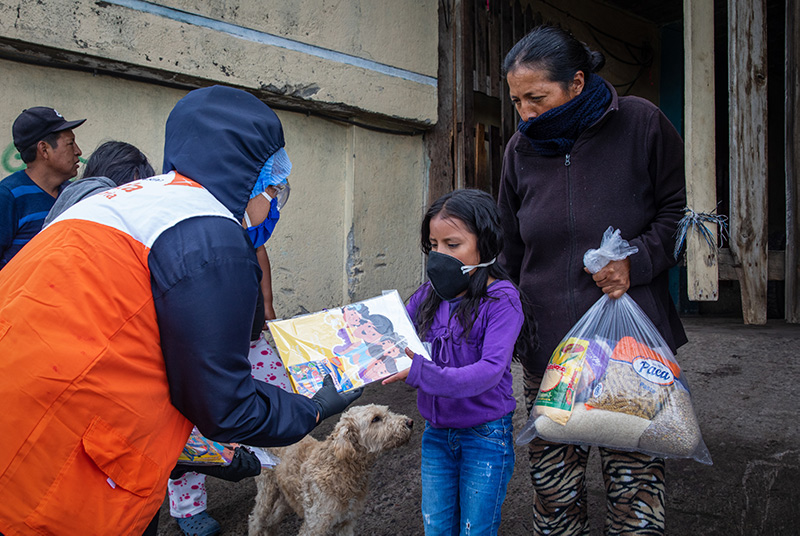SEATTLE (May 5, 2020) —World Vision today warned that unless the international community responds immediately and prioritizes the world’s most vulnerable in the fight against COVID-19, huge progress that has been made to save lives and reduce poverty over the past 30 years will be reversed. Children will bear the brunt of the global pandemic and child mortality rates, which have more than halved since 1990, could now start to increase again.
This stark warning came as the Christian humanitarian organization launched the largest humanitarian response in its 70-year history to curb the impact of COVID-19 among 72 million people – half of them children.
“The world’s most vulnerable were already hanging on by a thread, and that thread will get cut by COVID-19,” says Edgar Sandoval Sr., president of World Vision. “Still, with the help of God, there are things we can do to alleviate their suffering. For the first time in our history, we are implementing an emergency response in every single country we work in, coming alongside the world’s poorest to fight this deadly virus and its impacts.”
World Vision is also responding to COVID-19 in the U.S. where it is on track to help 650,000 people with Family Emergency Kits of food and supplies over the next three months. All told, the global response will be executed in more than 70 countries over the next 18 months, mobilizing 37,000 staffers, 220,000 community health workers, and 400,000 pastors and faith leaders. The plan aims to curb the spread of the virus, support health and community life-savers as well as help people recover from the devastating economic impacts of the pandemic.
Many people in poor countries under lockdown are already reeling from the virus’ economic blows as they are forced to choose between risking exposure to the virus or starving. “Those secondary impacts don’t feel very secondary when you’re living on the margins,” Sandoval added.
This pandemic is already sweeping through the world’s wealthiest countries, and now the world’s most vulnerable children are on the front lines with so little to protect them. In this next phase COVID-19 could run rampant through some of the poorest, most fragile and dangerous parts of the world; places where advanced health services are almost non-existent and where lockdowns and social distancing are impossible for people who live day-to-day in crowded refugee camps, slums and settlements.
In the world’s largest refugee camp, in Cox’s Bazar, Bangladesh, Rohingya families are particularly vulnerable. “The population of the main Rohingya refugee camp is comparable to San Francisco. But those 850,000 people are squashed into a space one sixth the size of that city,” explains Rachel Wolff, World Vision’s response director there. “Refugee families are trying to practice social distancing, but it’s hard when “sheltering-at-home” means 10 people to a room.”
World Vision is calling on world leaders, who are now focused on responding to the impact COVID-19 has had on the economy, to place equal priority on curbing the deadly long-term impact of COVID-19 on the world’s most vulnerable.
“The humanitarian community can’t do this alone,” said Sandoval. “We challenge governments, individuals, corporations, and all those who love and care for children to do much more to limit the spread of COVID-19 in low-income countries.”
